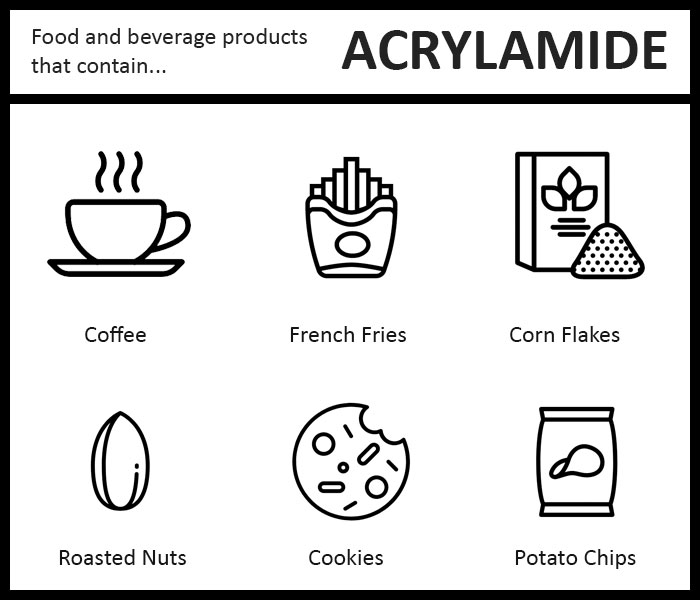Acrylamide is a chemical that naturally forms in starchy food products during high-temperature cooking, including frying, baking, roasting and industrial processing, at +120°C and low moisture.
The primary chemical process that causes this is the Maillard Reaction, the same reaction that ‘browns’ food and affects its taste.
Acrylamide forms from sugars and amino acids (mainly one called asparagine) that are naturally present in many foods. Acrylamide is found in potato crisps, French fries, bread, biscuits and coffee. It was first detected in foods in April 2002, although it has likely been present in food since cooking began. Acrylamide also has many non-food industrial uses and is present in tobacco smoke.
So, how do you like your toast? While there’s no direct evidence that acrylamide can cause cancer in humans, there is evidence it can cause cancer in laboratory animals.
All food business operators (FBOs) in the UK are required to implement simple, practical steps to manage acrylamide within their food safety management systems. This ensures that acrylamide levels in food are as low as reasonably achievable.
Regulation 2017/2158 establishes best practices, mitigation measures and benchmark levels for the reduction of the presence of acrylamide in food.
Businesses are expected to do the following:
- Be aware of acrylamide as a food safety hazard and have a general understanding of how acrylamide is formed in the food they produce;
- take the necessary steps to mitigate acrylamide formation in the food they produce – adopting the relevant measures as part of their food safety management procedures
- undertake representative sampling and analysis where appropriate, to monitor the levels of acrylamide in their products as part of their assessment of the mitigation measures
- keep appropriate records of the mitigation measures undertaken, together with sampling plans and results of any testing
The measures are proportionate to the nature and size of the business to ensure that small and micro-businesses are not burdened. The legislation applies to all FBOs that produce or place on the market the foods listed below:
- french fries, other cut (deep fried) products and sliced potato crisps from fresh potatoes
- potato crisps, snacks, crackers and other potato products from potato dough
- bread
- breakfast cereals (excluding porridge)
- fine bakery wares: cookies, biscuits, rusks, cereal bars, scones, cornets, wafers, crumpets and gingerbread, as well as crackers, crisp breads and bread substitutes
- coffee: (i) roast coffee; (ii) instant (soluble) coffee
- coffee substitutes
- baby food and processed cereal-based food intended for infants and young children
Different requirements apply to local and independent FBOs selling food directly to the consumer or directly into local retail. For example, independent cafes, fish and chip shops and restaurants.
The legislation reflects that the controls of acrylamide can be managed from the centre for larger centrally controlled and supplied chains with standardised menus and operating procedures. This would apply to, for example, large restaurants, hotels, and café chains.
![]()
For more info on acrylamide, follow the links below
Health Implications of Acrylamide in food
http://www.acrylamide-food.org/
https://www.efsa.europa.eu/en/topics/topic/acrylamide




